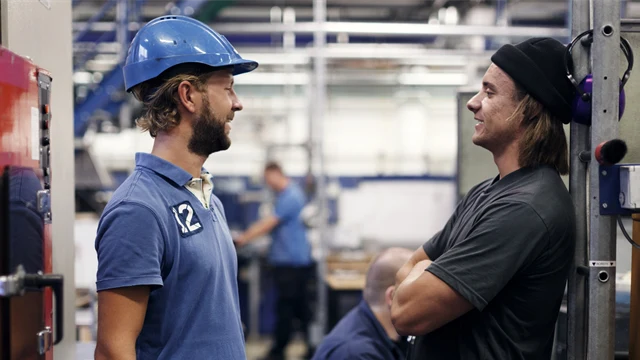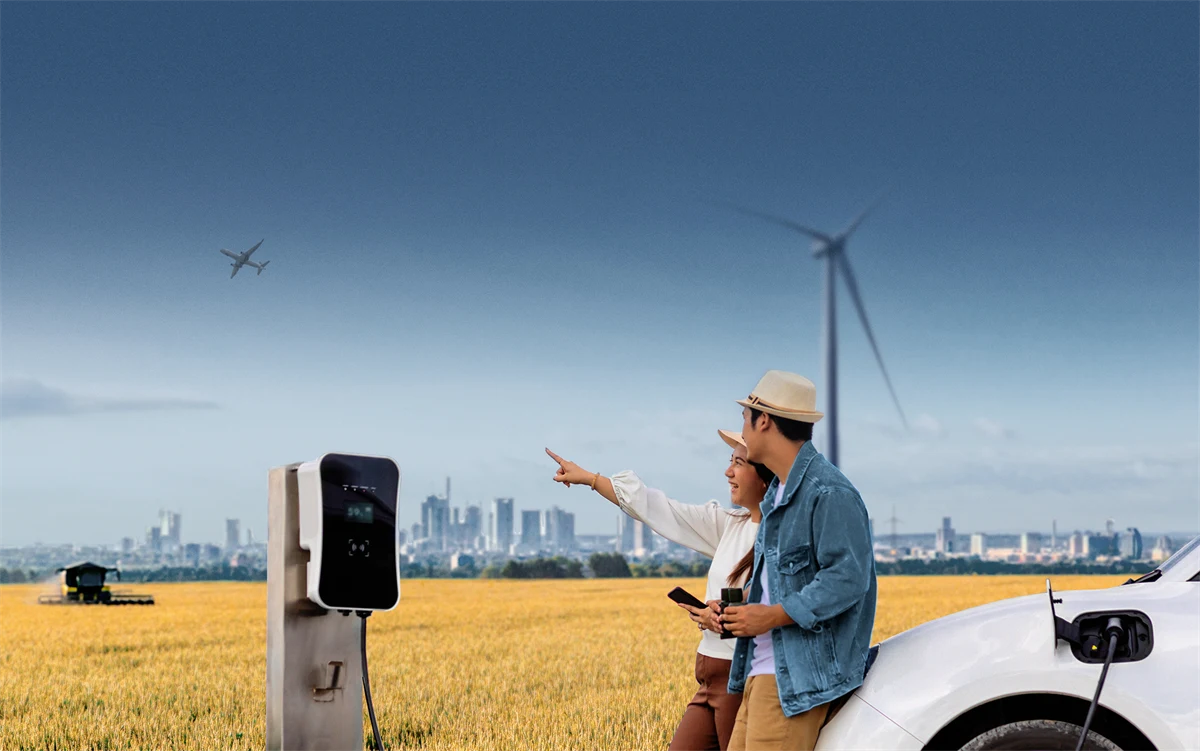
Metal powders are everywhere in our modern society
From our homes to our offices via our cars and grocery stores
Sustainability report 2023
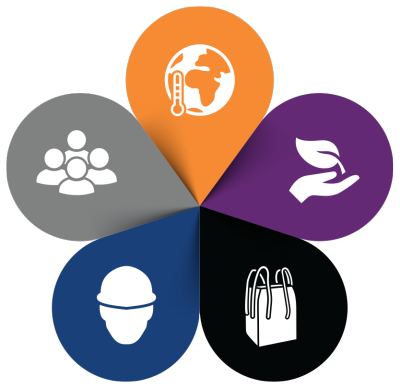 Höganäs has a broad sustainability agenda that covers important topics grouped in five areas.
Höganäs has a broad sustainability agenda that covers important topics grouped in five areas.
While climate transition may garner the most attention, other environmental and social issues such as workplace safety and human rights demand equal consideration for us to establish ourselves as a sustainable company in the eyes of ourselves and our stakeholders. Our materiality assessment serves as the basis for our agenda. It helps us focus our efforts where they matter the most. Read more about the materiality assessment on page 111.
As a preparation for CSRD (Corporate Sustainability Reporting Directive), we performed a double materiality assessment during the year, evaluating both Höganäs’ impact on people and planet and the financial effects those impacts are having on Höganäs. The next step is to perform a gap analysis to decide on necessary actions to fulfil the requirements in CSRD. Read more about our sustainability governance on page 112.
∎ Climate – Successfully reducing emissions will enhance Höganäs' relevance as both a supplier and employer. Aligned with our climate roadmap, we are committed to achieving net-zero emissions across our operations and value chain.
∎ Environment – Ensuring the safety of our production facilities and processes, without causing harm to the environment or individuals, is paramount for us. Our aim is that all investments should reduce our climate impact and improve our environmental performance.
∎ Products – Sustainability is an important part of the value proposition. We help and guide our customers towards more sustainable solutions and work to minimise waste while moving towards circularity in our own operations.
∎ Workplace – Being considered an attractive employer is a strength for all businesses. Creating a safe working environment is one important aspect. Other aspects are diversity & inclusion, treating employees fairly and making sure they can develop their skills, capabilities and grow on the job.
∎ Society – Höganäs is dedicated to maintaining its status as a responsible company. We ensure this by conducting our business ethically, considering the impacts on environment and people when choosing suppliers, paying our taxes and acting as a good neighbour and player in our industry.
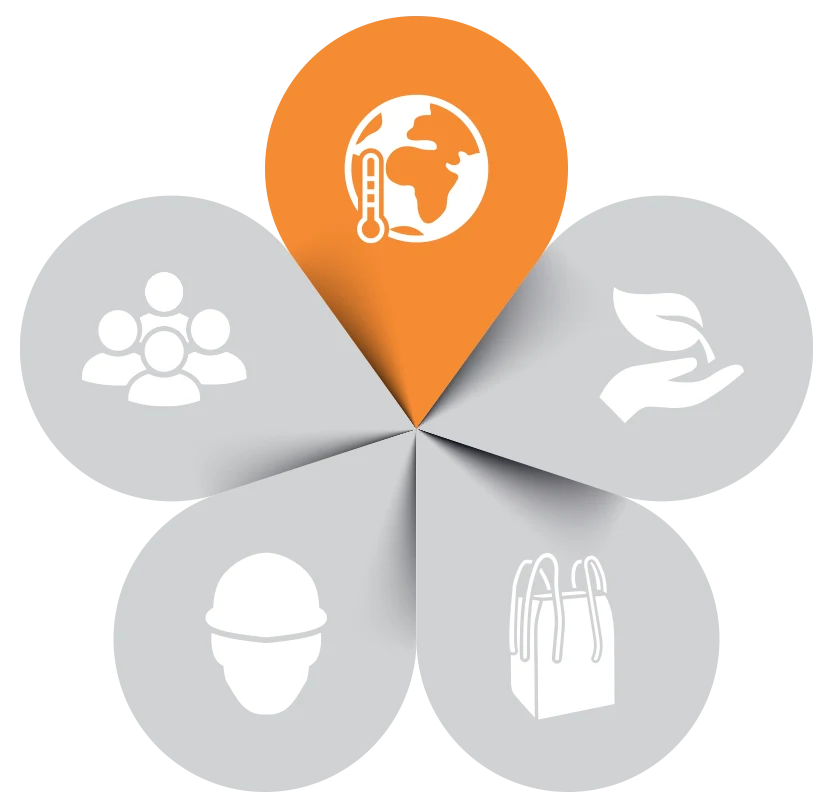
Climate
Considering the carbon intensity and the direct greenhouse gas emissions from our own operations, climate change is consequently our main focus area. Our ambitions are to reach net-zero in our own operations (scope 1 and 2) by 2030 and in our value chain (scope 3) by 2037. Here are some highlights from 2023:
- Total carbon dioxide emissions in scope 1 and 2 decreased by 46 percent since 2018 (tonnes).
- The overall reduction in scope 3 is 25 percent since 2018.
- We achieved our target to purchase 100 percent fossil-free electricity at all sites.
Read more on page 21-24 in Höganäs' Sustainability report
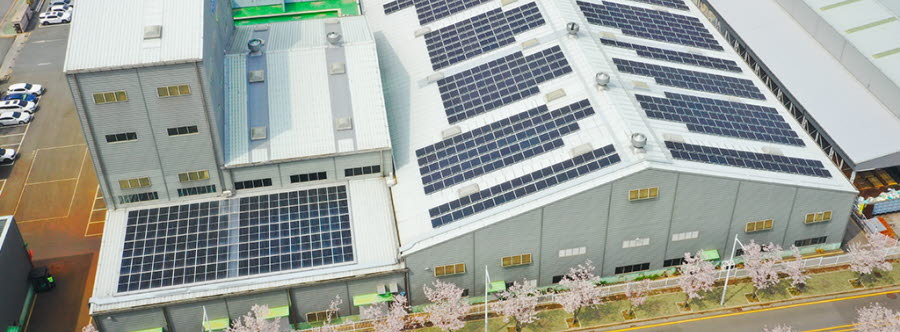
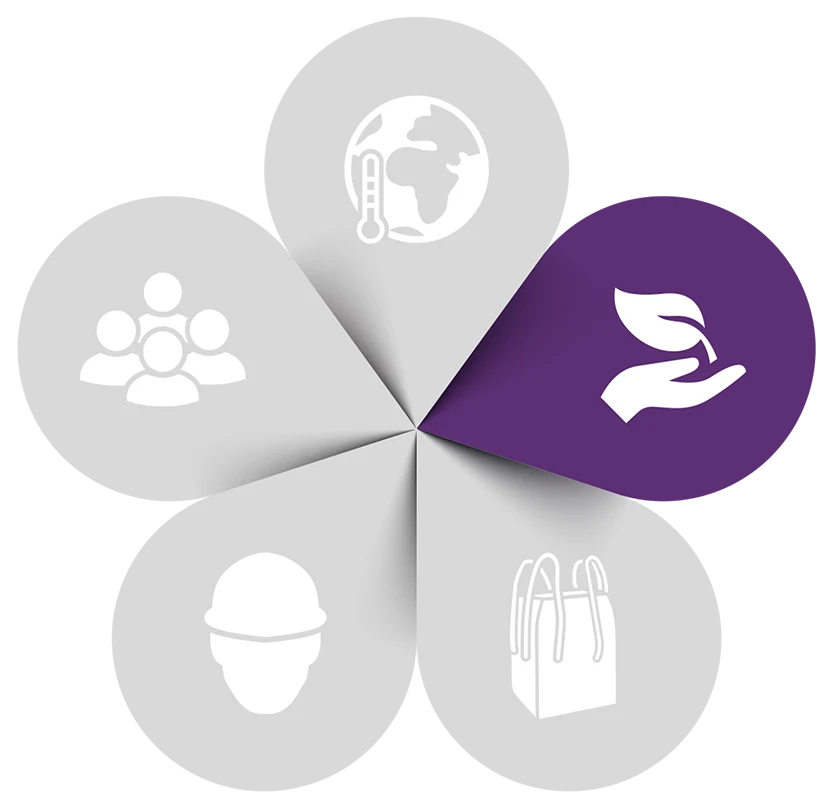
Environment
Höganäs’ activities contribute to environmental impact throughout the value chain. The impact to air, soil and water is considered limited in our own operations but could be significant across the value chain due to the use of raw materials coming from extractive industries.
- No cases of environmental non-compliances were reported.
- To avoid significant depletion of our nearby ecosystems, a work is initiated to identify the most important ecosystem services and learn how we can monitor them.
- Höganäs took extensive measures when sand martins nested on the company’s industrial site in Höganäs, Sweden, to avoid disturbing them during the breeding season.
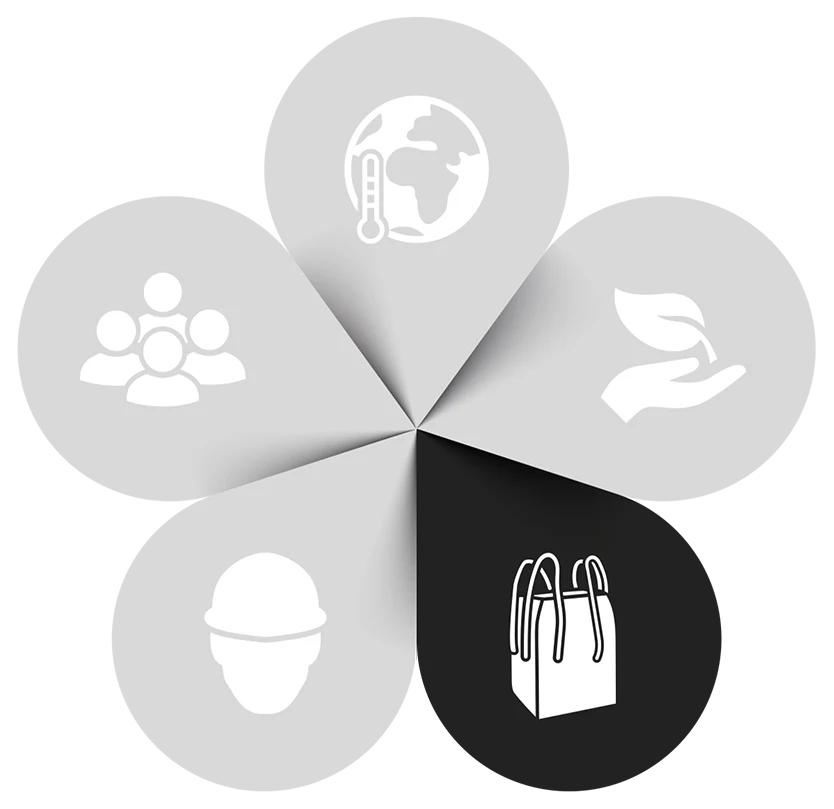
Products
Our products contribute to both positive and negative impact downstream in our value chain. The scale and scope of the negative impact downstream depend on the application and on to what extent downstream customers minimise their negative impact.
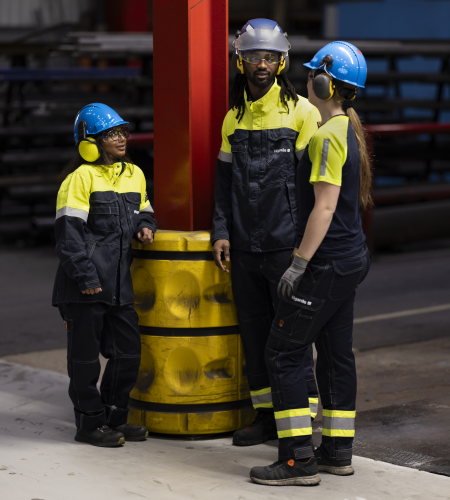
- We provide high-quality sustainability data on our products, including carbon footprint, that have been compiled using the Life Cycle Assessment (LCA) method. In 2024, we will continue to cover core processes and prioritised products produced at our sites in Sweden, Germany, India and the US.
- Using secondary or recycled materials limits the negative impact on the environment and our ambition is to use more of such materials in Höganäs’ production. In 2023, we reached a share of 51 percent (50) secondary materials.
- In 2023, 79 percent (74) of our process residuals were diverted from disposal, with the remaining 21 percent (26) sent to landfill.
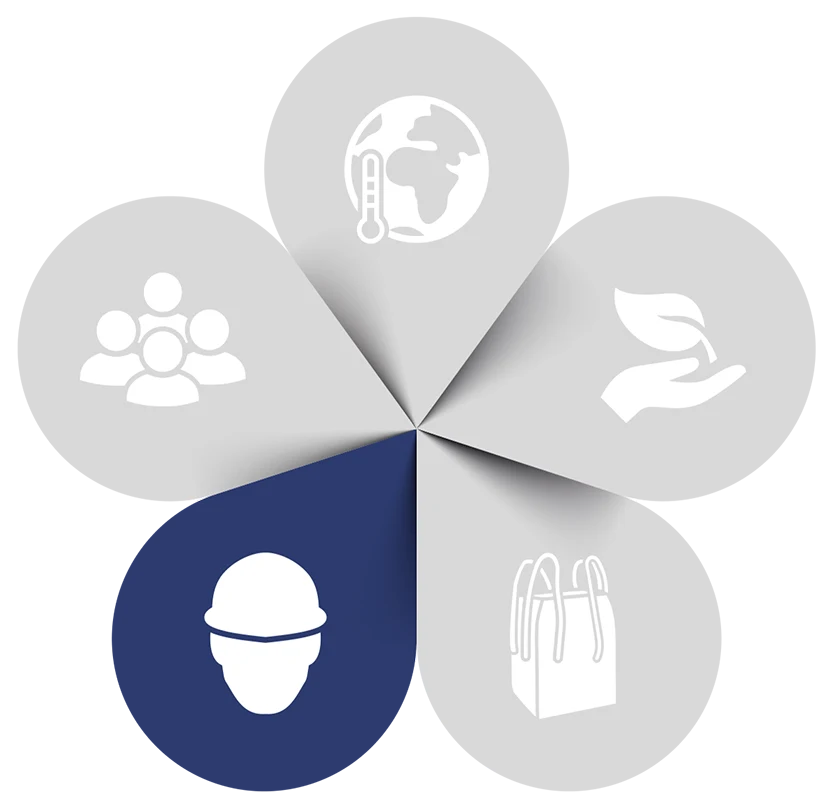
Workplace
Höganäs’ processes include working with hot molten metal, heavy lifting and moving machinery. Taking every precaution to ensure our co-workers’ physical safety as well as their general well-being and offering career development paths are necessary elements in attracting the talent that enable us to reach our targets and ambitions.
- Grow with Höganäs’ career development framework was launched.
- An e-learning course called ‘Sustainable workplace for everyone’ was launched. It is the third part in a series of mandatory sustainability trainings, to raise the general level of knowledge and awareness of diversity and inclusion in the organisation.
- A total of 67 percent of our co-workers had at least one individual performance and development individual talk.
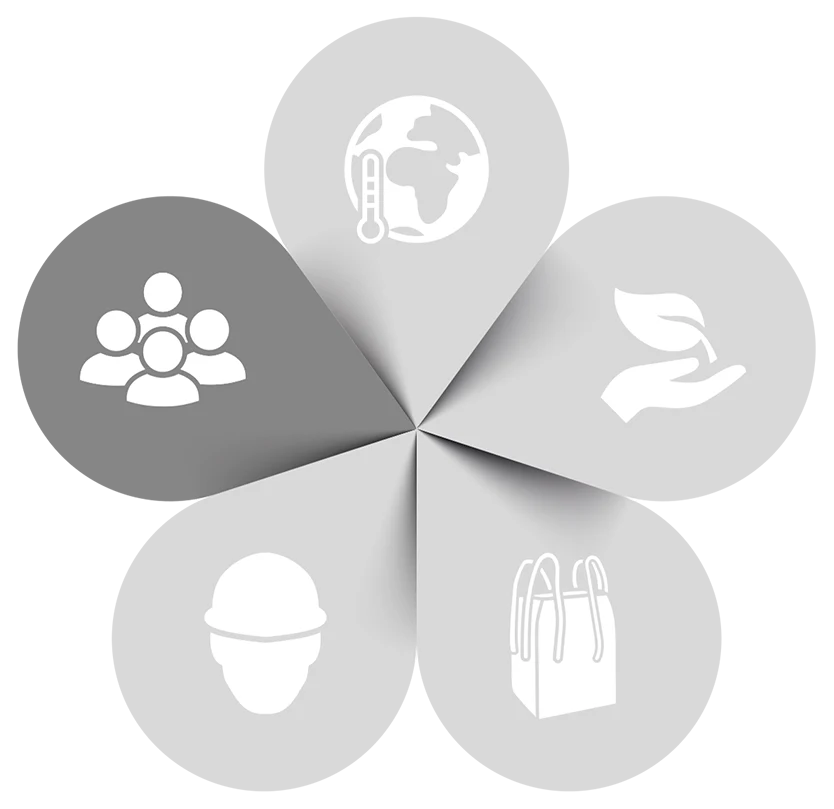
Society
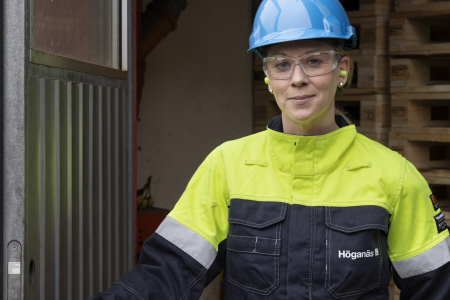 Managing relationships with suppliers, ensuring ethical business behaviour, and ensuring that workers in our value-chain are treated fairly are part of our responsible sourcing strategy.
Managing relationships with suppliers, ensuring ethical business behaviour, and ensuring that workers in our value-chain are treated fairly are part of our responsible sourcing strategy.
- Our target is that 100 percent of our around 300 key suppliers shall be rated as ‘good’ or ‘excellent’. In 2023, 78 percent (82) of our suppliers achieved this status.
- Conflict minerals legislation applies to 37 of our direct suppliers. So far, we have made a due diligence investigation regarding the requirements on all 27 of our suppliers in the regions Europe, the Middle East and Africa (EMEA).
- Social impact assessments covering health and safety, and environmental risks are carried out locally at each production site. 10 out of 13 sites have also included other topics such as gender impact, economic and infrastructural impact and corruption risks while 11 included humans’ rights risks.

